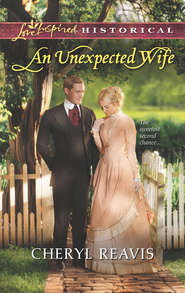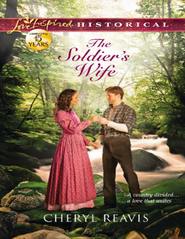По всем вопросам обращайтесь на: info@litportal.ru
(©) 2003-2024.
✖
Blackberry Winter
Настройки чтения
Размер шрифта
Высота строк
Поля
It surprised him a little that he found her…interesting. He hadn’t been interested in much for a long time. And it wasn’t just that she was self-assured and attractive and drove an expensive vehicle. Caught crying, she’d still had the presence of mind to conclude that he was an idiot for bothering her and react accordingly—but she wasn’t rigid about it. She’d revised her initial opinion of him once she’d understood that he only meant to help. He liked women like that—feisty, but still reasonable. He also liked the fact that she didn’t seem to be all that aware that everything she had was working for her. Or maybe she just didn’t waste such an obvious advantage on the help unless she wanted something.
In any event, she was obviously rich and she was definitely good-looking. She was also about as unhappy as he’d first thought, even before he’d seen her crying on the gazebo steps. He didn’t like having to witness a woman’s sadness. It reminded him too much of the things he was trying so hard to forget. He had seen enough sadness when he’d been in the army. All over the world. That relentless kind of sorrow that beat a woman down until she couldn’t hide it no matter how hard she tried. Hundreds of them. It lived inside them and looked out of their eyes.
The image of an altogether different woman’s face suddenly rose in his mind, and he had to work hard to push it away and force his thoughts back to the present. Whatever was going on with the Lilac Hill guests had nothing to do with him, and he had too many things on the concerns list already. Things like not sleeping night after night and not being able to find enough work to make ends meet. He had told the younger woman that everything was going to be all right. He shouldn’t have done that. He certainly didn’t believe it. Whatever optimism he’d once had had desiccated in a foreign desert. Nobody knew any better than he did that good deeds never go unpunished.
Which should have kept him from hanging around the church steps now.
He walked to the double doors of the church, expecting them to be locked. They were, but he thought not for long. If there was a funeral on the church schedule, then Estelle Garth would be arriving soon for one of her white-glove inspections. If it was possible for any one human being to own a house of worship, then Estelle Garth owned this one. She lived halfway up the hill just beyond the church, where she could see everything. Nothing happened on the premises night or day that she didn’t know about, and he expected that sooner or later she’d see him down here.
Estelle didn’t like him. As a boy, he’d spent an extraordinary amount of time trying to stay out of her crosshairs. At first, he’d thought it was because he’d lived in Chicago with his parents before they’d died, and those years had somehow canceled out the fact that he was a Conley and he’d been born here. Somehow, his brief absence had turned him into an outsider, and everybody knew how Estelle felt about them.
By the time he was ten or eleven it had gotten so bad that he’d had no alternative but to ask his great-aunt Nelda about it—and she hadn’t been nearly as helpful as he’d hoped.
“I reckon everybody’s got their cross to bear, Meyer, and she’s yourn,” she’d said.
He owed Nelda a lot, and he wanted to accept her simple philosophy of life, but he couldn’t do it, regardless of the fact that he was the pitiful homeless orphan none of his other relatives wanted. He must have lived in a dozen foster homes before Nelda stepped up to claim him and bring him home to the mountains again. By the time he came to live with her, he’d already had plenty of crosses to bear and the last thing he needed was Estelle Garth throwing another one on the pile. So he kept after Nelda. He needed a real reason, so he could deal with it.
“Maybe she thinks you done something,” Nelda said finally.
“If she thought that, she’d come to you about it—or she’d make the preacher do it. I’ve not done anything, Nelda. I swear it!”
“It…might not be you, Meyer.”
“Well, who then? She’s after me all the time—accusing me of things when there’s not a word of it true. I ought to know what it’s about, Nelda. How else am I going to stand it?”
“It might could be it’s got something to do with me, honey, something Estelle thinks I done, and the Lord knows I’d be sorry if you was having to suffer for it. Estelle, she thinks what she thinks, and whatever it is, can’t nobody on this earth change her mind about it. She’s been that way ever since I knowed her—when we was little girls even. If I was to go to her about you, it would just make it worse.”
The possibility that Nelda was the real target led to a certain moral indignation on his part. He didn’t like being chastised for his sins when he was guilty. He really didn’t like it when he was innocent, especially when it was done to persecute his beloved Nelda.
Estelle Garth.
There was something about being innocent that made him bold, made him just have to annoy the woman, if the opportunity presented itself. He was always respectful when he did it—he had Nelda’s standing in the community to consider—but he didn’t just toe the ground and let Estelle blame him for everything but the Great Flood after that. He spoke up for himself, no matter how many people were around to hear it, stating his innocence and politely reminding her of all the other times she’d thought he was guilty of something when he wasn’t. He especially enjoyed pointing out the time she’d accused him of throwing rocks at the church windows when he’d gone on a school trip and wasn’t even in the county.
Estelle had understood immediately that there had been a big change in their relationship, and that, for all intents and purposes, they were at war. And still were, as far as he knew. Nelda had been right about one thing. Estelle Garth didn’t change. Not too long ago, he’d overheard some of the women in Poppy’s store talking about how she still marked on her kitchen calendar exactly when every wedding took place. Evidently, she didn’t do it to avoid scheduling conflicts. She did it so she’d know in nine months if the marriage was a case of “have to.” Mostly legitimate wasn’t good enough for her. She was the self-appointed gatekeeper to eternal salvation, and she took the job seriously. Nothing deterred her, not even finding out that her late husband, Emlin, hadn’t walked the chalk line she had so carefully laid down for him. It had to have been a terrible shock to find out that the meek and mild Emlin had been on a first-name basis with every waitress in the county. Meyer smiled slightly at the memory of all of them coming to his wake and telling Estelle what a generous tipper her Emlin had been. Big bad Emlin had also taken money Estelle didn’t know he had and slipped off to Cherokee gambling with his fellow veterans from the American Legion Post.
But, worst of all, he hadn’t disowned his and Estelle’s only son the way Estelle told him to. She’d had to take to her bed after the will was read—a will she’d forced Emlin to hire a lawyer to write because she wanted to make absolutely sure it couldn’t be contested. Emlin and his lawyer had certainly gotten that part of it right.
Even so, it seemed to Meyer that the more Emlin’s sins came to light, the more high-and-mighty Estelle got, and, as much as he enjoyed it, he just wasn’t in the mood to aggravate her today. He owed her a little something, he supposed. She was the reason he’d thought army drill sergeants were rational.
“Come on, Bobby Ray,” he said aloud, stomping his feet to get the circulation going. All he knew about his being here was that Bobby Ray Isley wanted to talk to him.
Now.
And, because he’d known poor old Bobby Ray for as long as he could remember and because Bobby Ray was like a big overgrown and easily disappointed child, here he was.
He couldn’t even begin to guess what was happening with the man. Bobby Ray was scared to death of Estelle, and that alone made this location not the best choice for a meeting place. Besides that, he was scared of being struck by lightning whenever he used the telephone, storm or no storm, regardless of the season, and he had actually called Meyer at Lilac Hill—a huge indicator of how serious Bobby Ray thought the situation was. Needless to say, the conversation had been quick. Bobby Ray hadn’t given him a chance to ask anything. About all Meyer had gotten out of it was how distressed the old boy was.
But, there was a definite limit to how accommodating Meyer intended to be, and Bobby Ray drove his truck into the circle drive in front of the church just about the time Meyer reached it. Meyer stepped out into the cold wind to meet him, waiting impatiently while Bobby Ray struggled to get the driver’s side window down.
“Did she say her name, Meyer?” Bobby Ray asked when he finally got the glass to move an inch or so. “Did she?”
“Who, Bobby Ray?”
Bobby Ray’s train of thought constantly derailed, leaving big gaps in his conversations. He never could seem to tell the difference between what he thought to himself and what he’d actually said out loud.
“That woman. The one that went—to stay—up—at the house where you work,” he said, still struggling to roll the wobbly window in his truck the rest of the way down. “Did you find out what her name is?”
“No, I didn’t,” Meyer said, hunched against the wind. “I didn’t know you wanted me to.”
Bobby Ray quit fiddling with the window. “How come she wouldn’t tell you, Meyer?”
“Because I didn’t ask her. I’m the hired help, Bobby Ray. If the guests don’t come right out and say who they are, I don’t go asking things like that for no reason.”
“You got a reason.”
“No, I don’t.”
“Yeah, you do. I’m wanting to know, Meyer.”
“‘Bobby Ray Isley wants to know’ isn’t what most people would call a reason. Why do you want to know her name anyway?”
“I just do,” Bobby Ray said, his big hands opening and closing on the steering wheel. “She’s driving that little gray car and she bought gas at Poppy’s. And I want to know what her name is. Didn’t you even see her up there?”
“Yeah, I saw her.”
“Did you talk to her?”
“A little bit—”
“Didn’t you find out nothing?”
“Not much, no. I think her granddaddy might be from the mountains, here or somewhere,” Meyer said. “She said he used to make things—cedar boxes and pencil holders—stuff like that. Things to sell to tourists.”
“Oh, no,” Bobby Ray said. He gave a sharp sigh.
Meyer tried not to smile at Bobby Ray’s growing alarm. Ordinarily, Bobby Ray was not the kind of man to let himself be troubled by anything. He might get his feelings hurt if Poppy forgot his birthday, but basically he lived in his own little world of simple and perpetual bliss. Nothing worried him, not the local happenings and not world events. He went to his more or less token job at Poppy Smith’s convenience store every day, and then he went home to his trailer right next to the road that led to the Parkway, the monotony of it all broken up by coon hunting and trout fishing and an ice-cold bottle of beer now and again. That he would be so undone by a woman he’d seen buying gas at Poppy’s store was more than a little unusual. That he’d wanted Meyer to meet him at the church to talk about it bordered on the absurd.
“So what’s going on, Bobby Ray?” Meyer asked after a moment. “One of your chickens come home to roost?”
“Ain’t my chicken,” he said. “I ain’t got no chickens. Not that kind anyways.”
“Whose then?”
“I can’t tell you, Meyer.” Bobby Ray looked at him. “It might not be her, you know,” he added hopefully. “Poppy didn’t guess who she was.”
“Did you ask him?”
“No! I ain’t asking Poppy. His eyes ain’t that good anymore anyway.”
In any event, she was obviously rich and she was definitely good-looking. She was also about as unhappy as he’d first thought, even before he’d seen her crying on the gazebo steps. He didn’t like having to witness a woman’s sadness. It reminded him too much of the things he was trying so hard to forget. He had seen enough sadness when he’d been in the army. All over the world. That relentless kind of sorrow that beat a woman down until she couldn’t hide it no matter how hard she tried. Hundreds of them. It lived inside them and looked out of their eyes.
The image of an altogether different woman’s face suddenly rose in his mind, and he had to work hard to push it away and force his thoughts back to the present. Whatever was going on with the Lilac Hill guests had nothing to do with him, and he had too many things on the concerns list already. Things like not sleeping night after night and not being able to find enough work to make ends meet. He had told the younger woman that everything was going to be all right. He shouldn’t have done that. He certainly didn’t believe it. Whatever optimism he’d once had had desiccated in a foreign desert. Nobody knew any better than he did that good deeds never go unpunished.
Which should have kept him from hanging around the church steps now.
He walked to the double doors of the church, expecting them to be locked. They were, but he thought not for long. If there was a funeral on the church schedule, then Estelle Garth would be arriving soon for one of her white-glove inspections. If it was possible for any one human being to own a house of worship, then Estelle Garth owned this one. She lived halfway up the hill just beyond the church, where she could see everything. Nothing happened on the premises night or day that she didn’t know about, and he expected that sooner or later she’d see him down here.
Estelle didn’t like him. As a boy, he’d spent an extraordinary amount of time trying to stay out of her crosshairs. At first, he’d thought it was because he’d lived in Chicago with his parents before they’d died, and those years had somehow canceled out the fact that he was a Conley and he’d been born here. Somehow, his brief absence had turned him into an outsider, and everybody knew how Estelle felt about them.
By the time he was ten or eleven it had gotten so bad that he’d had no alternative but to ask his great-aunt Nelda about it—and she hadn’t been nearly as helpful as he’d hoped.
“I reckon everybody’s got their cross to bear, Meyer, and she’s yourn,” she’d said.
He owed Nelda a lot, and he wanted to accept her simple philosophy of life, but he couldn’t do it, regardless of the fact that he was the pitiful homeless orphan none of his other relatives wanted. He must have lived in a dozen foster homes before Nelda stepped up to claim him and bring him home to the mountains again. By the time he came to live with her, he’d already had plenty of crosses to bear and the last thing he needed was Estelle Garth throwing another one on the pile. So he kept after Nelda. He needed a real reason, so he could deal with it.
“Maybe she thinks you done something,” Nelda said finally.
“If she thought that, she’d come to you about it—or she’d make the preacher do it. I’ve not done anything, Nelda. I swear it!”
“It…might not be you, Meyer.”
“Well, who then? She’s after me all the time—accusing me of things when there’s not a word of it true. I ought to know what it’s about, Nelda. How else am I going to stand it?”
“It might could be it’s got something to do with me, honey, something Estelle thinks I done, and the Lord knows I’d be sorry if you was having to suffer for it. Estelle, she thinks what she thinks, and whatever it is, can’t nobody on this earth change her mind about it. She’s been that way ever since I knowed her—when we was little girls even. If I was to go to her about you, it would just make it worse.”
The possibility that Nelda was the real target led to a certain moral indignation on his part. He didn’t like being chastised for his sins when he was guilty. He really didn’t like it when he was innocent, especially when it was done to persecute his beloved Nelda.
Estelle Garth.
There was something about being innocent that made him bold, made him just have to annoy the woman, if the opportunity presented itself. He was always respectful when he did it—he had Nelda’s standing in the community to consider—but he didn’t just toe the ground and let Estelle blame him for everything but the Great Flood after that. He spoke up for himself, no matter how many people were around to hear it, stating his innocence and politely reminding her of all the other times she’d thought he was guilty of something when he wasn’t. He especially enjoyed pointing out the time she’d accused him of throwing rocks at the church windows when he’d gone on a school trip and wasn’t even in the county.
Estelle had understood immediately that there had been a big change in their relationship, and that, for all intents and purposes, they were at war. And still were, as far as he knew. Nelda had been right about one thing. Estelle Garth didn’t change. Not too long ago, he’d overheard some of the women in Poppy’s store talking about how she still marked on her kitchen calendar exactly when every wedding took place. Evidently, she didn’t do it to avoid scheduling conflicts. She did it so she’d know in nine months if the marriage was a case of “have to.” Mostly legitimate wasn’t good enough for her. She was the self-appointed gatekeeper to eternal salvation, and she took the job seriously. Nothing deterred her, not even finding out that her late husband, Emlin, hadn’t walked the chalk line she had so carefully laid down for him. It had to have been a terrible shock to find out that the meek and mild Emlin had been on a first-name basis with every waitress in the county. Meyer smiled slightly at the memory of all of them coming to his wake and telling Estelle what a generous tipper her Emlin had been. Big bad Emlin had also taken money Estelle didn’t know he had and slipped off to Cherokee gambling with his fellow veterans from the American Legion Post.
But, worst of all, he hadn’t disowned his and Estelle’s only son the way Estelle told him to. She’d had to take to her bed after the will was read—a will she’d forced Emlin to hire a lawyer to write because she wanted to make absolutely sure it couldn’t be contested. Emlin and his lawyer had certainly gotten that part of it right.
Even so, it seemed to Meyer that the more Emlin’s sins came to light, the more high-and-mighty Estelle got, and, as much as he enjoyed it, he just wasn’t in the mood to aggravate her today. He owed her a little something, he supposed. She was the reason he’d thought army drill sergeants were rational.
“Come on, Bobby Ray,” he said aloud, stomping his feet to get the circulation going. All he knew about his being here was that Bobby Ray Isley wanted to talk to him.
Now.
And, because he’d known poor old Bobby Ray for as long as he could remember and because Bobby Ray was like a big overgrown and easily disappointed child, here he was.
He couldn’t even begin to guess what was happening with the man. Bobby Ray was scared to death of Estelle, and that alone made this location not the best choice for a meeting place. Besides that, he was scared of being struck by lightning whenever he used the telephone, storm or no storm, regardless of the season, and he had actually called Meyer at Lilac Hill—a huge indicator of how serious Bobby Ray thought the situation was. Needless to say, the conversation had been quick. Bobby Ray hadn’t given him a chance to ask anything. About all Meyer had gotten out of it was how distressed the old boy was.
But, there was a definite limit to how accommodating Meyer intended to be, and Bobby Ray drove his truck into the circle drive in front of the church just about the time Meyer reached it. Meyer stepped out into the cold wind to meet him, waiting impatiently while Bobby Ray struggled to get the driver’s side window down.
“Did she say her name, Meyer?” Bobby Ray asked when he finally got the glass to move an inch or so. “Did she?”
“Who, Bobby Ray?”
Bobby Ray’s train of thought constantly derailed, leaving big gaps in his conversations. He never could seem to tell the difference between what he thought to himself and what he’d actually said out loud.
“That woman. The one that went—to stay—up—at the house where you work,” he said, still struggling to roll the wobbly window in his truck the rest of the way down. “Did you find out what her name is?”
“No, I didn’t,” Meyer said, hunched against the wind. “I didn’t know you wanted me to.”
Bobby Ray quit fiddling with the window. “How come she wouldn’t tell you, Meyer?”
“Because I didn’t ask her. I’m the hired help, Bobby Ray. If the guests don’t come right out and say who they are, I don’t go asking things like that for no reason.”
“You got a reason.”
“No, I don’t.”
“Yeah, you do. I’m wanting to know, Meyer.”
“‘Bobby Ray Isley wants to know’ isn’t what most people would call a reason. Why do you want to know her name anyway?”
“I just do,” Bobby Ray said, his big hands opening and closing on the steering wheel. “She’s driving that little gray car and she bought gas at Poppy’s. And I want to know what her name is. Didn’t you even see her up there?”
“Yeah, I saw her.”
“Did you talk to her?”
“A little bit—”
“Didn’t you find out nothing?”
“Not much, no. I think her granddaddy might be from the mountains, here or somewhere,” Meyer said. “She said he used to make things—cedar boxes and pencil holders—stuff like that. Things to sell to tourists.”
“Oh, no,” Bobby Ray said. He gave a sharp sigh.
Meyer tried not to smile at Bobby Ray’s growing alarm. Ordinarily, Bobby Ray was not the kind of man to let himself be troubled by anything. He might get his feelings hurt if Poppy forgot his birthday, but basically he lived in his own little world of simple and perpetual bliss. Nothing worried him, not the local happenings and not world events. He went to his more or less token job at Poppy Smith’s convenience store every day, and then he went home to his trailer right next to the road that led to the Parkway, the monotony of it all broken up by coon hunting and trout fishing and an ice-cold bottle of beer now and again. That he would be so undone by a woman he’d seen buying gas at Poppy’s store was more than a little unusual. That he’d wanted Meyer to meet him at the church to talk about it bordered on the absurd.
“So what’s going on, Bobby Ray?” Meyer asked after a moment. “One of your chickens come home to roost?”
“Ain’t my chicken,” he said. “I ain’t got no chickens. Not that kind anyways.”
“Whose then?”
“I can’t tell you, Meyer.” Bobby Ray looked at him. “It might not be her, you know,” he added hopefully. “Poppy didn’t guess who she was.”
“Did you ask him?”
“No! I ain’t asking Poppy. His eyes ain’t that good anymore anyway.”











